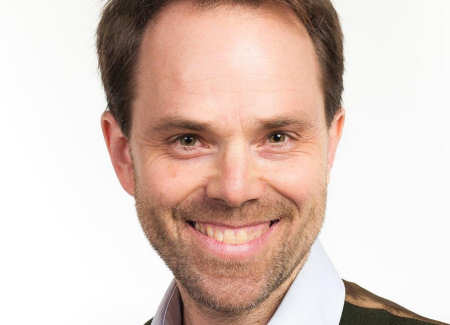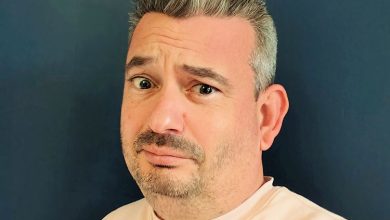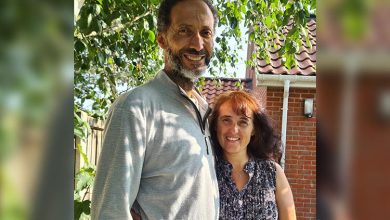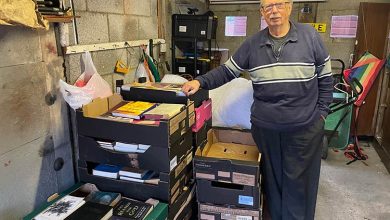Opinion
Green vision of Norwich Quaker philosopher

Rupert is well known in Norfolk as the UEA philosopher who nearly became a Green Euro MP, but how does he go about living up to his political agenda for change?
Rupert chose to live in the city, so that he is able to cycle to the UEA, the city centre and the railway station, whilst enjoying the natural world in the huge old cemetery at the back of his home. He owns a car, but uses it only when left without an alternative. He rarely flies, and instead organises conferences via Skype and video-conferencing to reduce unnecessary air miles by academics and environmentalists. He is keen to grow his own vegetables on his allotment.
His one luxury is time, as he recognises the dangers of becoming a workaholic, and feels that he has found a good work-life balance, which allows for time with his wife and high quality films and TV-series, like (lately) “Game of Thrones”.
When Rupert went to Oxford University to study Politics, Philosophy and Economics, he expected radical politics to be the core of his interest, and spent much of his undergraduate years in political involvement, so he was surprised to get a first class degree and realise that he had the understanding to become a professional philosopher.
Studying for his doctorate in USA certainly honed his awareness of the environmental crisis and the cruelty to animals he saw endemic in American society made him keen to return to Britain and take on these issues in his homeland.
Ethical investment and ethical shopping are key to his ideas of Stewardship, as is collective political action: many of our problems are too big to solve by means of even co-ordinated individual action alone. He emphasises that ethical investment is more than avoiding certain products, although he was proud to play a key part in the movement that persuaded the UEA in the 90s to divest itself of investment in the arms trade. There is a huge need for positive investment in social enterprise and free trade to make the world a fairer place, as Rupert sees it.
Rupert served two terms on Norwich City Council and is justifiably proud of the achievements of the minority Green Party there, including an achievement that he himself spearheaded: the bringing of 20mph limits to a third of the city. Consider the children and OAPs who are still alive as a result. He is currently the national Green Party spokesman on transport. He is also vice-chair of the cross party independent think-tank “Greenhouse”, which includes Michael Meacher and Jonathon Porritt. Another national multi-party pressure group benefiting from his involvement is “Compass”.
Equal wage levels are very important to the formation of a more equitable society, so paying a “living wage” to Norwich city employees was always an important principle for the Greens whilst he was on the City council.
Quakers have a lasting importance in his life, as does his regime of daily meditation. His intellectual rigor makes him naturally questioning towards any organised religion, but, coming together in silence to find a gathered stillness is something he believes it is profoundly-valuable to experience. For more detail see the chapter on Quakers in his book ‘Philosophy for Life’.
His first Quaker Meeting, in 1989 in New Jersey, overwhelmed him with the power of the silence and the strength that vocal ministry drew from that gathered silence. As Nietzsche says: “Only speak when you cannot be silent.” Thus he sees worship and discernment of the right way forward coming together in the openness of silence.
When making a weighty difficult decision, he will first draw up a list of for and against, and think matters rationally; but there comes a moment when you have to ask “What would be the loving thing to do here?” and confide in people you trust. In one really difficult decision he did make use of a Quaker “Meeting for Clearness”, but usually the silent openness to Truth will reveal the way.
He has recently published on the value of religious processes in producing precautious decisions. (See his article “Religion, heuristics and intergenerational risk management”, co-authored with Nassim Taleb and published by “Econ Journal Watch”.)
The euro election clearly took much of his time this year, so he is glad to be able to concentrate more on his academic job, with his book ‘Liberatory Philosophy’ applying Wittgenstein, now in the pipeline. He wants to advance a political philosophy for all beings, showing that there is no division between the needs for love and care of human and non-human animals and the world we share.
With his deep concern for the future bridging the intellectual world and the world of electoral politics, it would be surprising if Dr Read was not standing for a parliamentary constituency in a university town in the next General Election.
www.rupertread.net
Pictured above is Dr Rupert Read.
Click below to read the previous articles in this series
George Szirtes and Clarissa Upchurch
Richard Bacon
Hilary Cox
Rupert Read
Goff Hope
William Armstrong
Richard Jewson
Henry and Ski Cator
Paddy Seligman
Read the full article here







